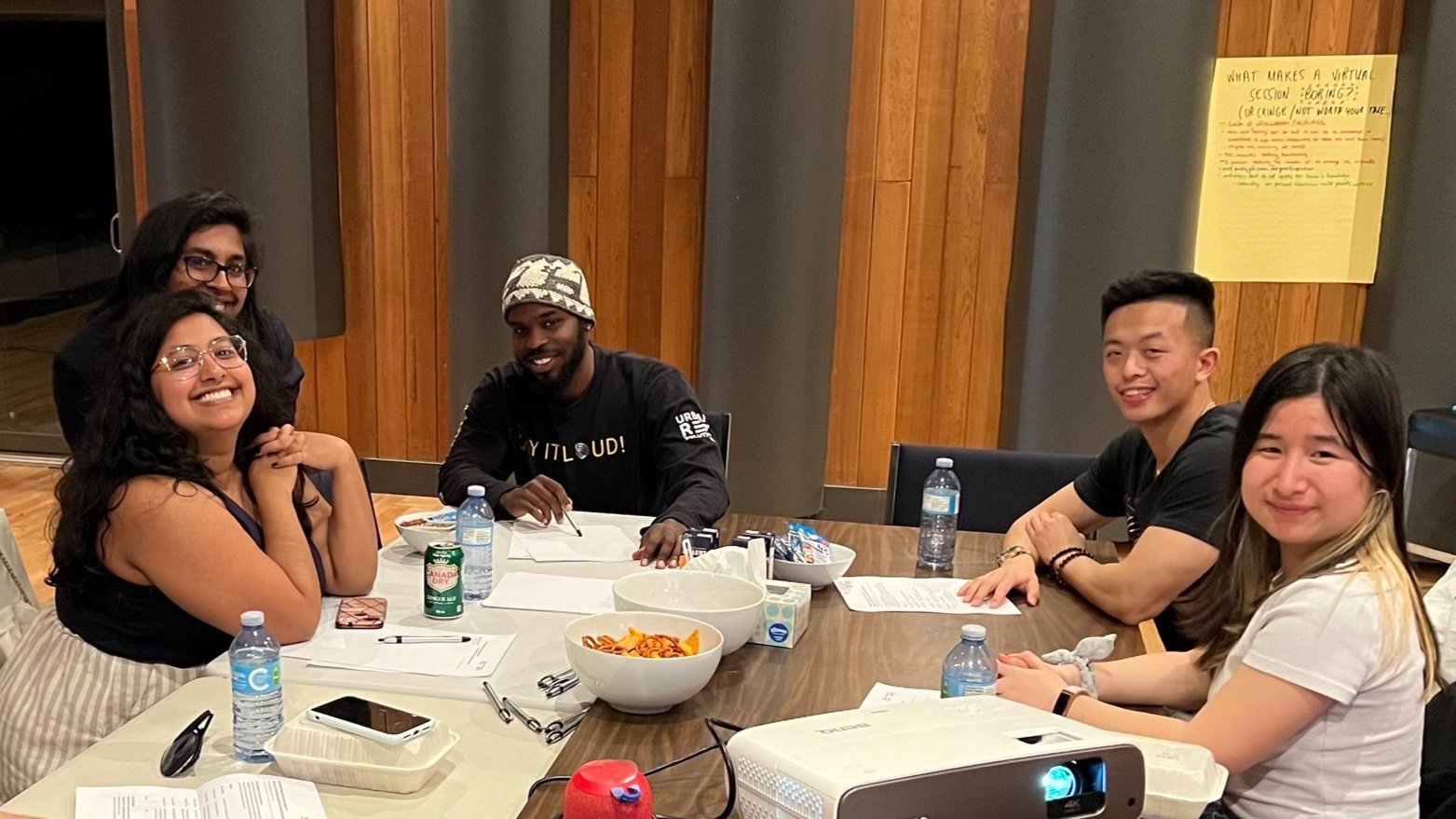
RESEARCH
CO-DESIGNING HYBRID PROGRAM MODELS
As with most organizations, Next Generation Arts adapted our programs to online when the pandemic hit. After emerging from isolation, our youth participants saw the value in the virtual component of programs and services, even now that activities are back in-person. This evolving need for hybrid program delivery is a new mode that Next Generation Arts felt the need to research and explore so that our organization can be better equipped to serve youth in Scarborough and Toronto. With funding from the Ontario Trillium Foundation’s Resilient Communities Fund, we had the opportunity to conduct research and co-design hybrid program models with and for youth, in addition to upgrading our physical spaces, in order to build capacity and resiliency for our organization.
We collected feedback through surveys to gain a general understanding of youth and facilitators’ general attitudes towards virtual programs coming out of the pandemic. Taking themes and general issues gleaned from the survey, we conducted a series of focus groups to dive deep into what makes virtual sessions engaging and how to intentionally and thoughtfully integrate digital into our programs and services. Taking all the feedback, information, and insight collected from the surveys and the focus groups, we collaborated with youth to design their ideal hybrid program models using an art form of their choosing.
This report synthesizes the insights and feedback gathered from the survey and the focus groups, and presents key findings and recommendations for conceptualizing, planning, and implementing hybrid programs for youth. At the end of the report, we also include samples of hybrid program models created by youth that facilitators and organizations can use as templates or starting points for thinking about the different configurations and possibilities of hybrid programming.
We hope you find the information on this report useful for your work with and for youth.
We gratefully acknowledge support from the Ontario Trillium Foundation's Resilient Communities Fund for supporting this initiative.

